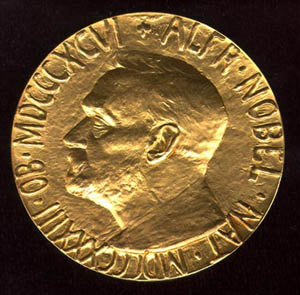 When President Barack Obama won the Nobel Peace Prize last year, seemingly for no particular reason, the American media went crazy. Regardless of what a particular analyst thought about the matter they were all quick to state their point of view.
When President Barack Obama won the Nobel Peace Prize last year, seemingly for no particular reason, the American media went crazy. Regardless of what a particular analyst thought about the matter they were all quick to state their point of view.
Not the case in China. A week after the Nobel Peace Prize was awarded to imprisoned Chinese dissident Liu Xiaobo it’s unclear what impact the news will have. People there largely don’t know who Liu Xiaobo, a long-time pro-democracy activist jailed in 2008 for speaking out, is. This is the product of an insanely expensive censorship campaign; one that has China filtering the entire Internet.
All mention of the prize was scrubbed from the media and the web last week. Major news outlets, from BBC to CNN to The New York Times to Al Jazeera, were all wiped from the net in China; some sites are still blocked. So far as people there know the sites are simply not working, because China doesn’t acknowledge its “Great Firewall” exists. Blocked sites appear to be mere 404 errors.
That’s internally. Externally, the Chinese government was quick to condemn the award. The initial statement? The award going to Liu Xiaobo would hurt China’s relations with Norway. Shortly after the award was announced Chinese officials demanded to speak with the Norwegian ambassador.
Given that the winner is selected by a committee of Norsemen, not the government, this is a rather odd thing to say. Norway is to be punished because an independent group of citizens are celebrating the bravery of a particular Chinese dissident? The implication here is that Norway should, like China, have total control over its people’s statements; that if Norway’s not willing to suppress freedom of speech about China, that will damage relations.
This is, of course, absurd. China wants to become a more integral part of the international community without the scrutiny that comes with. American leaders are hated abroad, for many reasons, but America doesn’t cut relations with France when they burn Bush effigies in the streets. Freedom means The People can say what they want.
China, not respecting its own people’s freedom of speech, apparently extends that lack of respect to other nations’ people as well.
A nation aspiring to be a global power really can’t afford to think that way.
But what happens inside China? Chinese students I’ve spoken to here in America seem to think it’s good for China to look at issues from multiple points of view, which seems consistent with what I know of Chinese philosophy. The problem is the people simply don’t know what’s going on.
Can this censorship of information last forever? It’s already lasted longer than most people expected it could.
But this is a unique moment in history. Since 2008 a public discussion about Universal Values is becoming increasingly open, with some Communist Party members even taking part. Liu Xiaobo is today in prison, but may well live to see a day when all mention of him isn’t wiped from the Chinese media.

Nice article. Link to the nobel website inside the article doesn’t work though.
Oop! I’ll fix it right away. Thanks Vineeth!